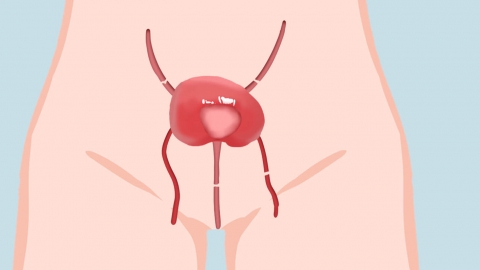What causes the sensation of heaviness when urinating during the postpartum period, and what should be done about it?
Feeling a sensation of heaviness or downward pressure during urination in the postpartum period (sitting the month) may be caused by pelvic floor muscle relaxation, incomplete uterine recovery, cystitis, urethritis, or pelvic inflammatory disease. This can be improved through pelvic floor muscle exercises, adequate rest and regulation, and medication. If the sensation of heaviness or pain worsens or is accompanied by frequent urination or abnormal bleeding, prompt medical attention is necessary.
1. Pelvic Floor Muscle Relaxation: During childbirth, the pelvic floor muscles may become overstretched and damaged, leading to reduced urinary control. Increased abdominal pressure during urination can cause a feeling of downward pressure. It is recommended to perform Kegel exercises—contracting the pelvic floor muscles for 5–10 seconds, then relaxing; three sets per day—to gradually restore muscle tone.
2. Incomplete Uterine Recovery: After childbirth, the uterus needs time to contract back to its pre-pregnancy size. If it has not fully recovered, it may press on the bladder, causing a sensation of heaviness during urination, possibly accompanied by lingering lochia. Ensure sufficient rest, avoid prolonged standing or sitting, and gently massage the abdomen if needed to promote uterine contraction.

3. Cystitis: Poor hygiene after delivery may allow bacteria to enter the bladder and cause inflammation. Bladder mucosal congestion and swelling lead to a sensation of heaviness during urination, often accompanied by frequent and urgent urination. Under medical guidance, medications such as amoxicillin capsules, cefaclor capsules, or Sanjin tablets may be used to relieve symptoms.
4. Urethritis: Reduced immunity after childbirth makes the body more susceptible to bacterial invasion through the urethra, causing inflammation. Irritation of the urethral mucosa results in a sensation of heaviness and burning during urination. Patients may take cefixime dispersible tablets, levofloxacin capsules, or compound Shewei capsules as directed by a physician to alleviate discomfort.
5. Pelvic Inflammatory Disease: Bacterial infection of pelvic tissues after childbirth causes inflammation, pelvic congestion, and irritation of surrounding tissues. Changes in abdominal pressure during urination may intensify the sensation of heaviness, often accompanied by lower abdominal fullness or discomfort. Under medical supervision, medications such as cefuroxime axetil tablets, metronidazole tablets, or Fuyankang tablets may be used to improve symptoms.
Maintain good external genital hygiene and change sanitary products frequently. Wear cotton, breathable underwear. Eat a light, easily digestible diet, drink plenty of warm water, avoid holding urine, and engage in moderate physical activity according to your recovery level to support overall recovery.







